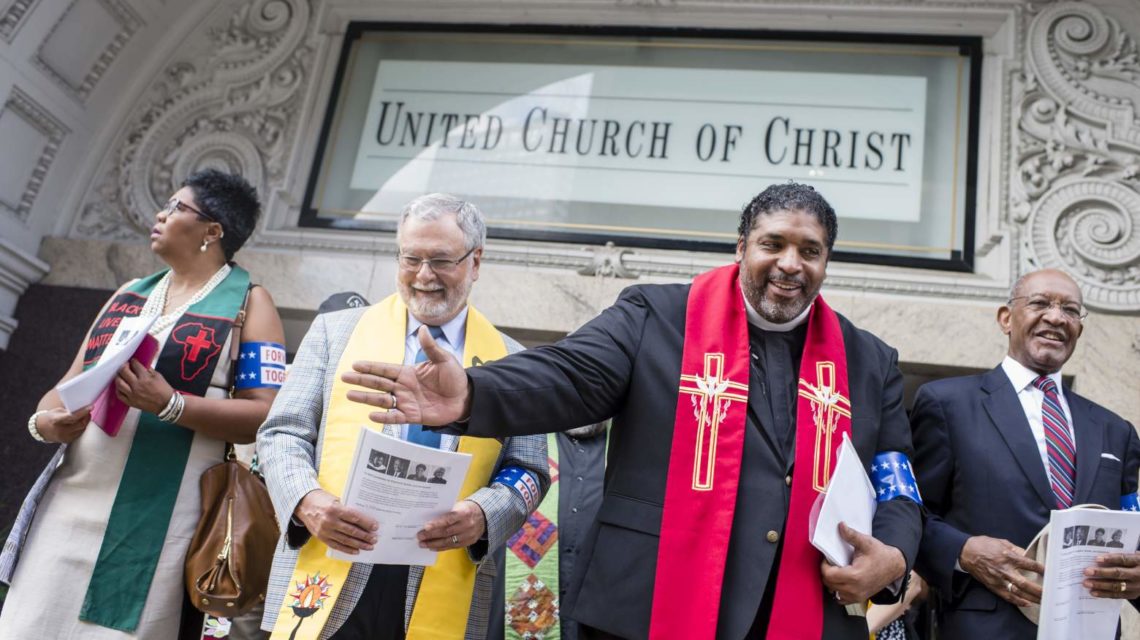By Catherine Lizette Gonzales
ColorLines, December 4, 2017 —
Faith leaders around the country are recreating Dr. Martin Luther King Jr.’s mass mobilization of working-class people.

Faith leaders, from left, Rev. Dr. Traci Blackmon, Rev. Peter Morales, Rev. Dr. William J. Barber, II, and Rev. Dr. James A. Forbes, Jr., prepare to deliver the ‘Higher Ground Moral Declaration’ to RNC headquarters on July 11, 2016 in Cleveland, Ohio. Photo: Angelo Merendino/Getty Images
On December 4, 1967, Dr. Martin Luther King, Jr. called for the creation of the “Poor People’s Campaign,” a national movement that brought together people with low incomes nationwide to march on Washington and demand an end to poverty.
Today, exactly 50 years later, two prominent faith leaders—Reverend Dr. William Barber II and Reverend Liz Theoharris— announced a revival of that struggle. The Poor People’s Campaign: A National Call for Moral Revival will unite coalitions of labor unions, farmworkers, civil rights groups and marginalized communities in 30 states in a six-week long protest next spring.
Campaign co-chairs Reverends Barber and Theoharris marked the occasion with a pray-in at Senator Mitch McConnell’s (R-Ky.) office today. They also denounced the Republican-led tax reform bill in a letter forwarded to press, which calls the bill a “gross act of violence” against the nation’s most vulnerable communities. From the letter:
The voice of the prophet Isaiah speaks to each of us in this democracy:
Woe to those who make unjust laws, to those who issue oppressive decrees, to deprive the poor of their rights and withhold justice from the oppressed of my people, making widows their prey and robbing the fatherless. (Isaiah 10:1-4)
You and many of your colleagues say you are Christians and that you let your religion guide your policymaking. You even say you are “pro-life.” But your actions are stripping people of the healthcare they need to survive. You are working to pass legislation that is antithetical to the more than 2,000 verses that call on all of us to care for the poor and the sick.
As part of the launch, the Institute for Policy Studiesalso released a report documenting the campaign’s four issues: racism, poverty, militarism and environmental destruction. According to the study, 60 percent more Americans are living below the poverty line now than they were in 1968, and there is an even greater presence of racialized sentencing and criminalization of poverty than existed 50 years ago.
“We must transform the moral narrative in this country,” Rev. Barber said in an emailed statement. ”Now we are witnessing an emboldened attack on the poor and an exacerbation of systemic racism that demands a response. This is not about saving any one party or policy agenda, but about saving the soul of America.”
Rev. Barber streamed the full press conference announcing the launch on his Facebook page:










